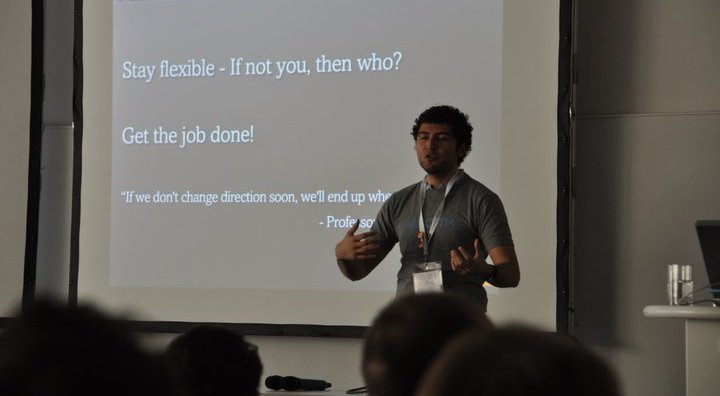
Lectures, Seminars, Workshops
Teaching
2021
Leading Data Science
I teach an elective at the Center for Digital Technology and Management in Munich. The course consists of individual cases and a practical part. Industry experts cover individual cases. The cases can be technical where we discuss specific implementations, or they involve project, people, and product management. Students must put their knowledge to practice and solve a real-life problem in teams with a provided dataset. They will have sufficient time to work on their solution.
Description
In this elective, we will learn how to build teams that solve problems using data. We will understand which problems are commonly faced by companies in the digital economy and explore the most common solutions to address them. There is a particular emphasis on practicality and real-life scenarios. For this reason, several guest speakers working with data, machine learning, and product as managers or specialists will present examples from their work. This elective mixes technical skills with people and project management.
Foundations of Data Science
I helped redesigned its syllabus and focus it on skills and tools that prepare doctoral students for roles such as machine learning engineer in the industry.
2020
Models of Sequence Data
In 2020, I co-taught a course on time series and sequences using modern machine learning methods such as deep learning. I helped redesigned its syllabus and structure it around modules.
Description
In this course, we discuss the forefront of modern research in learning from sequence data. The lectures take a walk ranging from the basics of sequence processing to contemporary deep learning approaches. We aim at covering both fundamental and modern advances in this area not commonly discussed in undergraduate or graduate Machine Learning and Deep Learning classes. We will investigate how researchers and practitioners use these methods and algorithms for analyzing time-series data, text data, or medical sequences over multiple weeks. We explore how experts use these concepts for time series forecasting, failure detection of machines, assessing the similarity of CRISP sequences, and more. The course aims to bring all students on the same page. They do not require severe background knowledge. The objective is to provide them with both depth and breadth knowledge of the state-of-the-art in sequence modeling.
2019
Foundations of Data Science
In the Summer Semester 2019, I was responsible for tutoring and organizing the lecture Foundations of Data Science at Skoltech.
Machine Learning
In 2019, I was a teaching assistant at the Machine Learning course at Skoltech
Description
The course is a general introduction to machine learning (ML) and its applications. It covers fundamental modern topics in ML and describes the most important theoretical basis and tools necessary to investigate algorithms’ properties and justify their usage. It also provides essential aspects of the ‘ applications, illustrated using real-world problems. The course starts with an overview of canonical ML applications and issues, learning scenarios, and more. Next, we discuss in-depth fundamental ML algorithms for classification, regression, and clustering, their properties as well as their practical applications. The last part of the course is devoted to advanced ML topics such as Gaussian processes, neural networks, active learning. Within hands-on sections, we show how to use the methods above to crack various real-world problems. Home assignments include applying existing algorithms to solve applied industrial issues, developing modifications of ML algorithms, and some theoretical exercises. The students are assumed to be familiar with introductory linear algebra, probability, and real analysis.
2018
Foundations of Data Science
Description
This course introduces modern research in data science and familiarizes Ph.D. students with state-of-the-art in those areas. In particular, we present cornerstone subjects that are not commonly discussed in undergraduate or graduate Machine Learning classes. This course explores extensively three different Machine Learning areas, namely Causality, Topological Data Analysis, Graph neural networks, Optimal Transport, and Deep Learning Theory.
Over multiple weeks, we will investigate how we can use these methods and algorithms for many cases. Some examples are analyzing scientific data, social networks, or time-series data, creating recommender systems, mining sequences, carrying out text/web analysis, topic modeling, and pattern mining.
We explore how we can apply these concepts for dimensionality reduction and manifold learning, combinatorial optimization, relational and structured learning, classification and regression methods, semi-supervised learning, unsupervised learning including anomaly detection and clustering, kernel methods, compressed sensing and sparse modeling, Bayesian methods, deep learning, hyper-parameter and model selection, Markov decision processes, reinforcement learning, dynamical systems, and Hidden Markov Processes.
The course brings all students on the same page regarding the nature and orientation of state-of-the-artwork in their field. Students will acquire both depth and breadth of knowledge.